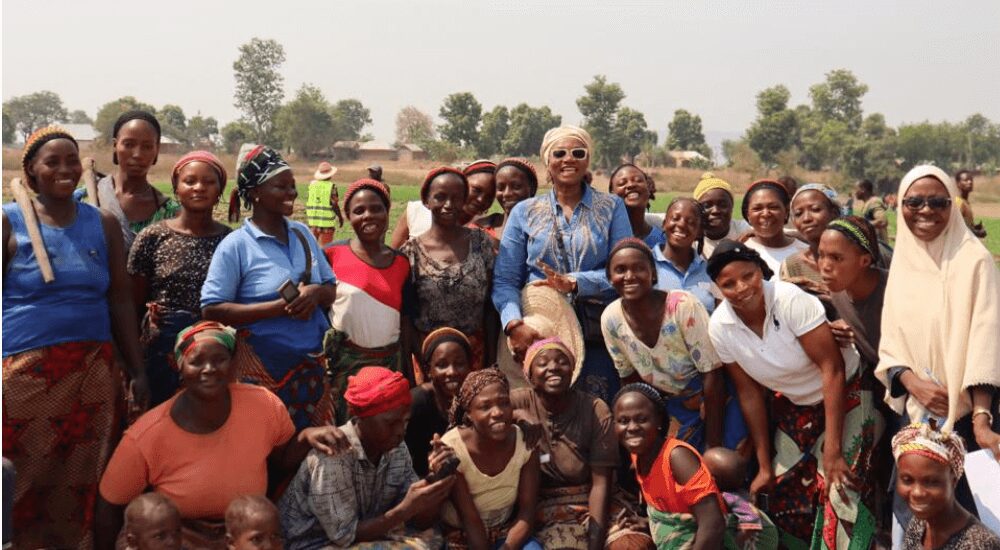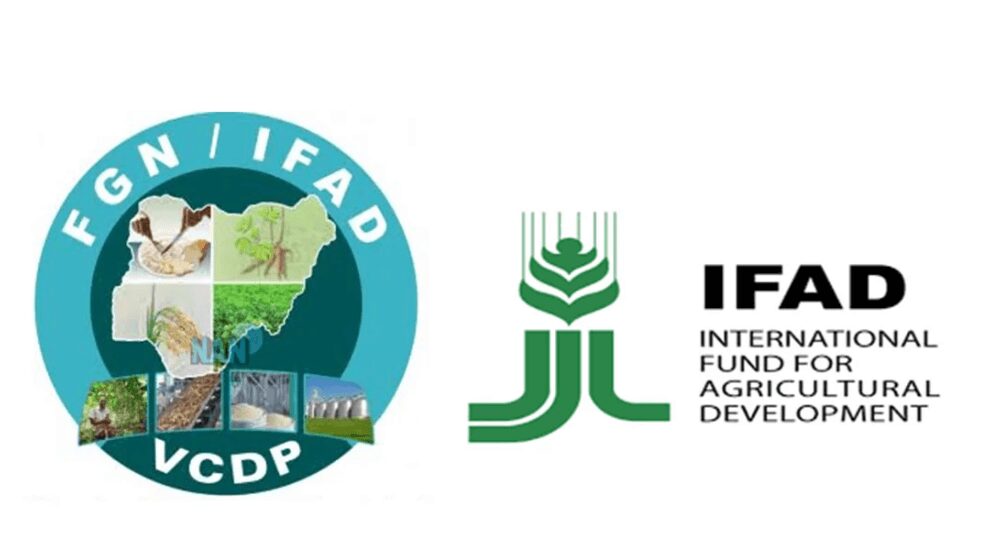The FGN and IFAD are jointly implementing a Value Chain Development (VCDP) in nine states of the country, namely: Anambra, Benue, Ebonyi, Niger, Ogun and Taraba. Others are Enugu, Nasarawa and Kogi States.
The Value Chain Development Programme (VCDP) focuses on enhancing the productivity and profitability of smallholder farmers and medium scale agro-processes by improving their access to markets and capacity to increase yield as well as add value to locally produced raw materials through improved processing and packaging.
Advertisement
Successory Nigeria Limited, a Consultant for the project, is currently implementing a VCDP Project in Kogi State on Climate Change Drivers, Impacts and GAPs for Sustainable Rice Production in 4 LGAs of Ajaokuta, Ibaji, Kabba/Bunu and Lokoja.
It has provided training for Lead Farmers and Farming Groups on Sustainable Rice Production System Adaptative to Climate Change.
Dr. Stella Adejoh is the Kogi State Coordinator for the International Fund for Agricultural Development (IFAD). In this interview with THE WHISTLER, she speaks on the achievement, challenges and expectations of IFAD.
EXCERPTS…
Advertisement
Briefly Explain The Importance of IFAD to Farmers
The International Fund for Agricultural Development (IFAD) is supporting value chain development programs.It came into force on 14 October 2013 as a six-year development initiative with the target of promoting the rice and cassava value chain. However, the program became effective in 2016.
IFAD’s first stage was originally scheduled to end in December 2019. With the financial closing Phase scheduled for June 2020. The program started in six states namely, Niger, Anambra, Benue, Ebonyi, Ogun and Taraba.
Subsequently, in 2020, Nasarawa, Enugu and Kogi also came on board. This initiative is not limited to educating farmers, but is a development objective, focusing on reducing rural poverty, increasing food security and accelerating economic growth on a sustainable basis. The target is poor rural households that are engaged in the production, processing and marketing of rice and cassava.
What Has Your Experience Been Three Years After The Program Started In Kogi State?
Advertisement
It has been good. Kogi state is three years and six months now and we have been able to profile passionate farmers interested in the value chain of rice and cassava. Although there are challenges, but farmers have shown willingness and dedication to the program, and with this attitude, I believe we will make substantial progress.
From Programme Objective, IFAD Aims To Increase Incomes And Enhance Food Security For An Estimated 53,480 Rural Poor Households. What Has Been Achieved So Far In Kogi State?
The 53,480 poor households are a global figure for the entire program in the nine states and not mandated for Kogi state. First of all, what we do is profile the farmers and put them into the database and this helps us to know the exact farmers we are working with along the different enterprises (production, processing and marketing).
Up to December 2023, in Kogi state, we have been able to profile 7,141 farmers. A breakdown of this figure is 5,306 moved to production, 1,203 processors and about 632 are marketers. We have successfully profiled them.
Out of these profiled farmers, we have successfully supported 6,201 beneficiaries but can’t categorize them into households because we deal with farmers’ organizations. Currently, we are carrying out surveys so we can be exact when it comes to households.
What Is The Gender Based Ratio/Strength In Terms Of Participation To The 7,141 Farmers Profiled? Who Are The People Willing To Join This Program?
Advertisement
From the number profiled, about 39 per cent are women and 51 per cent are men. But in terms of beneficiaries, 51 per cent are women, 41 per cent are men, and 18 per cent are youth. However, among the women we have youth, same for the men.

We have been able to send about 20 youths to African rice, to be trained on rice/wheat seed production. These trained youths are back in the program. Now farmers in the program in need of seed for cultivation, patronize the trained youths.
We have also sent some youths to the National Youth Crop Research Institute in Umudike Abia State, to learn cassava stem production. They’re also back to the program and are now producing for cassava farmers who are beneficiaries of the program.
This approach makes various stakeholders active along the value chain.
What Have Been Your Challenges So Far?
First, infrastructural accessibility is one major challenge. Most of the communities are hard-to-reach areas with Kogi state being a flood-prone area. Most times when it rains, it is difficult to reach our beneficiaries.
Also, market access. This is not the local market but the readiness of the private sector to patronize our farmers, especially the cassava product as a result of fake shelf life.
Subsequently, lack of access to the Internet limits progress. if we want to record substantial progress, then we have to harness the area of electronic extension service provision. Because we cannot always access the hard-to-reach areas. But if our farmers had access to the internet, it would make our information easy for them. Insecurity is another pressing challenge.
What Have You Done To Tackle Some Of These Challenges?
So far, there have been a few things. In terms of facilities, we have constructed markets, constructed productive facilities. In some places, because of the nature of the road, we have to construct culverts or mini bridges for the farmers to evacuate their products from the community. However, there are places where we can’t construct roads and these are roads prone to erosion.
Also, we have the Commodity Alliance Strategy, where we bring people from the public and private sector, Police, Civil Defence and other paramilitary agencies within the Local Government Areas (LGA) to collaborate with the leaders of the farmers monthly to discuss and implement necessary security measures.
What Do You Suggest The Federal Government Do In Tackling These Challenges?
The government should address the issue of insecurity which is affecting our farmers thereby leading to an increase in prices of food products, by implementing community policing on a larger scale.
Construction of more roads and internet linkages within the LGAs will go a long way in sustaining the program.
What Do You Hope To Achieve In The Nearest Future?
To link rural producers to larger off-takers outside their localities, because the small-scale producer may not have the capacity to off take all that is been produced. Also, aim at seeing more farmers willing to sign a Memorandum Of Understanding (MOU) with the private sector that can upscale their products straight from the farm. To see more women and youth benefit from the program, becoming entrepreneurs, poverty reduction in Kogi state.
In the next two years, I see a stronger and more effective linkage between farmers, processors and off takers thereby creating millionaires among beneficiaries.



